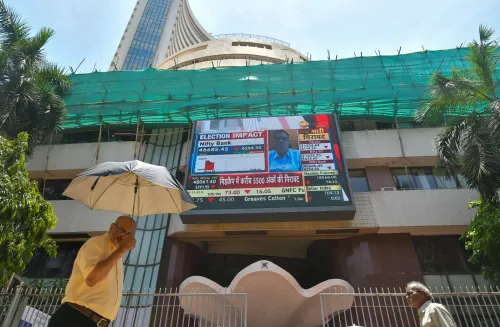Is the Calcutta Stock Exchange Ending Its Operations After 117 Years?

Synopsis
Key Takeaways
- CSE's closure reflects significant changes in India's stock market landscape.
- Investor confidence was deeply impacted by past scandals.
- Voluntary Retirement Scheme was introduced for employees.
- The subsidiary, CCMPL, will continue operations.
- SEBI plays a crucial role in the exit process.
Mumbai, Oct 19 (NationPress) The Calcutta Stock Exchange (CSE), recognized as one of India's historic stock exchanges, is on the verge of observing its last Kali Puja and Diwali this year on October 20 as an operational bourse.
Following an extensive legal and regulatory struggle, the exchange is nearing the completion of its voluntary exit from the stock market business.
Established in 1908, CSE once stood as a rival to the Bombay Stock Exchange and played a pivotal role in the financial framework of Kolkata.
However, the exchange encountered a significant downturn after the 2001 Ketan Parekh scandal, which triggered a payment crisis as numerous brokers failed to fulfill settlement obligations. This event severely undermined investor confidence and gradually led to the exchange's decline.
In April 2013, trading at CSE was suspended by the Securities and Exchange Board of India (SEBI) due to regulatory complications.
Since that time, the exchange has persistently sought to resume operations and has challenged SEBI’s rulings in court. Ultimately, the board of CSE made the decision to withdraw from the stock exchange business.
CSE Chairman and Public Interest Director Deepankar Bose reported that shareholders ratified the exit plan during an Extraordinary General Meeting (EGM) on April 25, 2025.
The exchange subsequently submitted its formal exit application to SEBI on February 18 this year. SEBI has engaged Rajvanshi & Associate as the valuation agency to conduct the final review prior to granting approval.
Once SEBI provides the final green light, the Calcutta Stock Exchange will cease to operate as a stock exchange.
Nevertheless, its wholly owned subsidiary, CSE Capital Markets Private Limited (CCMPL), will continue to function as a broker and maintain its membership with both the NSE and BSE. The parent company will transition into a holding entity.
As part of its exit strategy, CSE has also secured SEBI’s approval to sell its three-acre land on EM Bypass to the Srijan Group for Rs 253 crore. The transaction will be finalized once SEBI grants the exit approval.
In anticipation of the closure, CSE implemented a Voluntary Retirement Scheme (VRS) for its employees, offering a one-time compensation of Rs 20.95 crore.
All employees accepted the offer, with a few retained on contract for compliance tasks. This initiative is projected to save the company approximately Rs 10 crore annually.
At its peak, the exchange boasted 1,749 listed companies and 650 registered trading members. In his annual report for FY2025, Chairman Bose highlighted CSE's significant contributions to India’s capital markets. He also revealed that he received Rs 5.9 lakh in sitting fees during the financial year.









